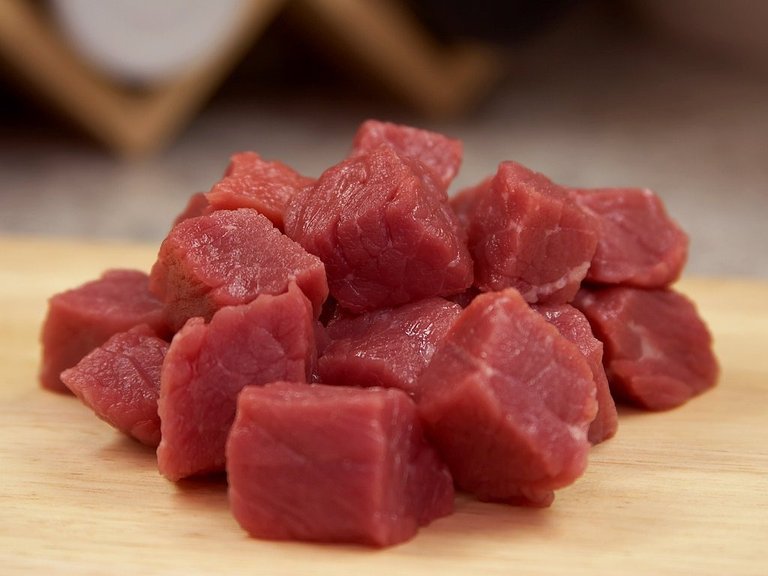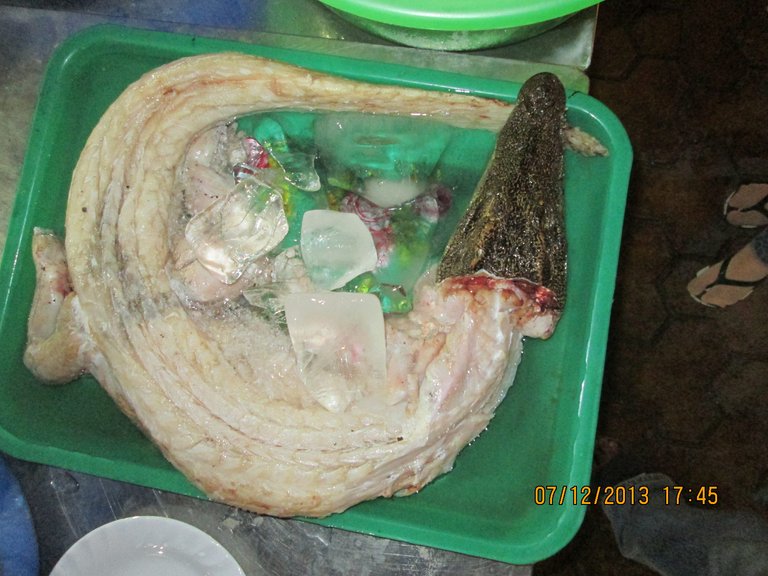My siblings asked me a question yesterday, and it goes does "Cows, Poultry birds, rabbit, Deer, Antelopes, and other herbivores or omnivores are things we eat, why do we not eat carnivores?" Well, I want to direct the same question to you... Why do we not eat carnivores or better still, why do we steer clear of them?
Before I did any research at all, the first thing that came to mind was the health importance and safety. So normally, carnivorous animals do not cook their meat and this means that they eat the animal raw and in the process, ingest their parasites, microbes, and chemical compounds as wells as heavy metals. Well, with the increased level of health knowledge that we have, we should be able to beat the microbes and parasites that these animals harbor from their preys but how do we handle the heavy metals such as Mercury in their body.
Why I did not see any case of a person eating a wild animal and suffering from issues of mercury poisoning, we know that mercury is dangerous to our health causing irritation to the eyes, skin, and stomach, leading to cough, chest pain, as well as difficulty breathing, in serious cases can lead to insomnia, irritability, weakness, exhaustion, and weight loss. According to the WHO, it can lead to degeneration in the central and peripheral nervous systems, it has also been said to affect neonate development.
I didn't see researches that hold strong on this but then fishes are one type of animals that feed on other water animals which makes them carnivores. Some fishes have Methylmercury in them which is very toxic when consumed. This is usually common in larger and longer-lived fish .
When you see that fishes eat fishes and other water organisms, you think all carnivores eat meat. Let me guess you wonder? Okay, Carnivores animals fall under the order Carnivora but then Pandas do not eat meat because they eat Bamboos. Carnivorous animals have sharp teeth, claws and Gut bacteria to digest meat and so pandas do not lack any of the three properties, also similar to all carnivores who have short guts since meat is less fibrous, pandas also have a short gut for digestion.
Some giant pandas would still eat insects, and bird eggs but this just makes up 1% of their total diet because they eat bamboo to a total of one third of their weight. While pandas eat bamboos, the get the necessary protein required from the it, also the bamboo is low in easily digestible carbohydrate and it is similar to meat instead of plant.
So then the question "Why we do not eat Raw Meat" was thrown, and I just jabbed it with answers that might interest you. When it comes to eating any type of raw meat, it comes with a lot of risk depending on how it was slaughtered, processed and prepared. Different animals have different microbes and different parasites such as in raw fishes with roundworm, Fluke, and Tapeworm with can connect to the organs in our body, causing lots of damage. Cooking any animal is the best way to ensure that the parasites in them are killed, and infectious agents are gone.
Our preference for herbivores and omnivores likely stems from health and safety concerns. Carnivores tend to accumulate harmful substances in their bodies, and consuming them increases the risk of exposure to parasites, microbes, and heavy metals like mercury. Additionally, eating raw meat, regardless of its source, poses significant risks due to potential contamination. Thus, cooking meat thoroughly remains the safest approach to avoid these hazards.
Reference
https://link.springer.com/article/10.4098/j.at.0001-7051.032.2008
https://www.researchgate.net/publication/
https://www.cdc.gov/niosh/topics/mercury/default.html
https://www.who.int/news-room/fact-sheets/detail/mercury-and-health
https://www.healthline.com/nutrition/mercury-content-of-fish#fish-concentrations
https://ucmp.berkeley.edu/mammal/carnivora/carnivoralh.html
https://www.sciencedirect.com/science/article/pii/S0960982219303951?via%3Dihub
https://www.ncbi.nlm.nih.gov/pmc/articles/PMC3912123/
https://www.sciencedirect.com/science/article/pii/S1095643320300350
https://www.theatlantic.com/science/archive/2019/05/giant-panda-closet-carnivore/588553/
https://www.nationalgeographic.com/science/article/bears-and-bamboo-the-fossil-record-of-giant-pandas


Good debate!! We have a preference but still we see people eating raw meat: carpaccio, sushi etc.
But for sure it is risky.
Thanks for your contribution to the STEMsocial community. Feel free to join us on discord to get to know the rest of us!
Please consider delegating to the @stemsocial account (85% of the curation rewards are returned).
Thanks for including @stemsocial as a beneficiary, which gives you stronger support.